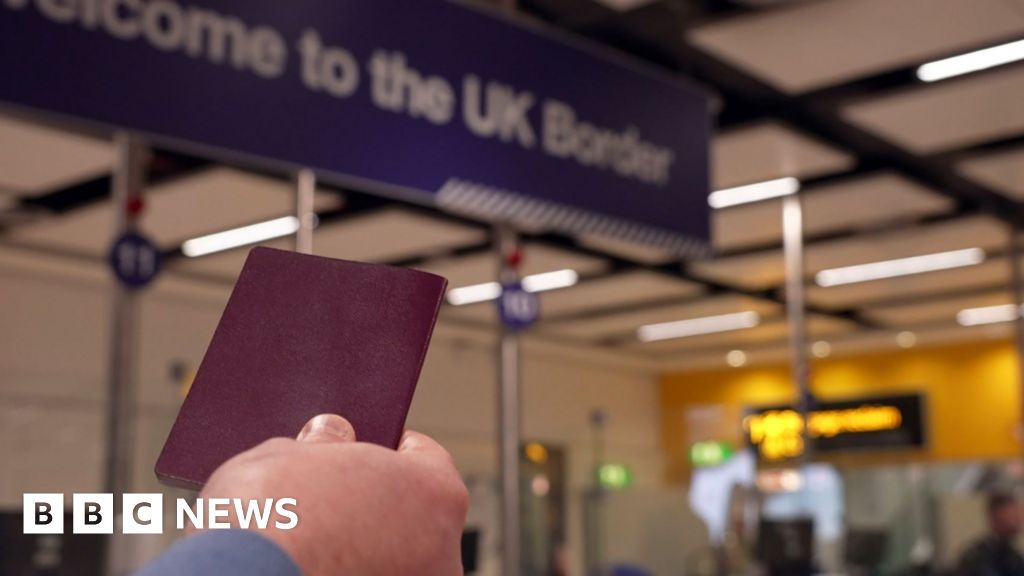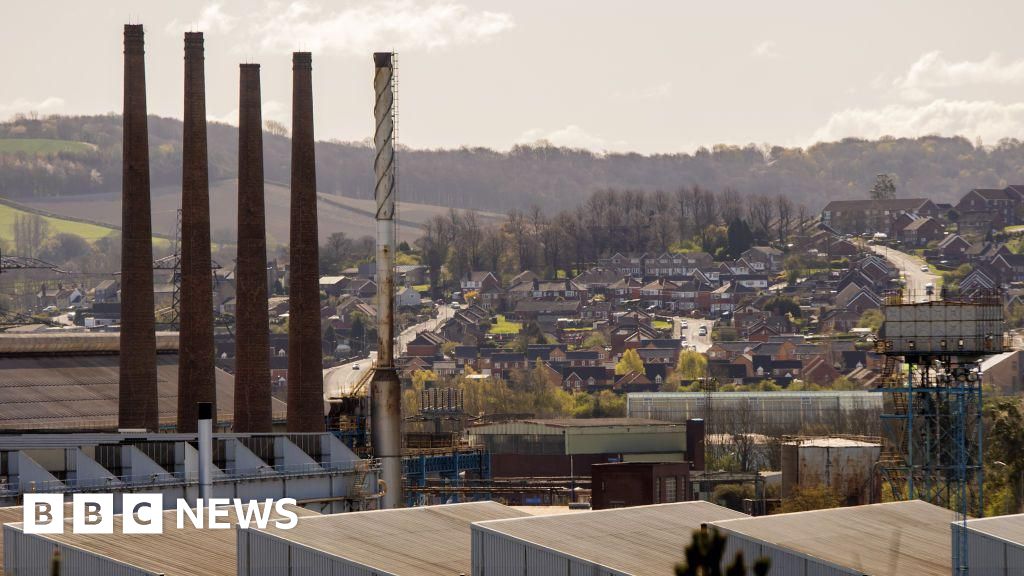ARTICLE AD BOX
Image source, Getty Images
Four of the world's biggest carmakers have failed to sign a COP 26 summit pledge to only sell zero emissions cars and vans by 2035.
Volkswagen, Toyota, Renault-Nissan and Hyundai-Kia were not among signatories to the climate summit declaration.
China and US, which are the world's biggest car markets, were also absent from the list of signatories.
Big car manufacturers that did sign up included Ford, General Motors, and Jaguar Land Rover.
What did the pledge say?
The declaration, which was made at the COP 26 climate summit in Glasgow, called on signatories to speed up the global transition from cars that burn fossil fuels to zero emissions vehicles, which include electric cars and hydrogen fuel cell vehicles.
The agreement signed by governments and city authorities across the world commits signatories to ending the sale of new cars that produce emissions in "leading markets" by 2035, and globally by 2040.
Investors and banks said they would support the transition, and some fleet owners pledged to make their car and van fleets green.
Who signed up the list?
Some major carmakers were signatories, including Ford, General Motors, Jaguar Land Rover, Mercedes-Benz and Volvo.
Governments that signed up included Canada, Denmark, India, Ireland, Mexico, the Netherlands, New Zealand, Sweden, and the UK - although Britain has already said it will ban sales of new petrol and diesel cars from 2030.
Some US cities and states put their names to the list, including New York and California.
Investors including Aviva and NatWest, and fleet owners including supermarkets Sainsbury's and Tesco also signed up.
Image source, Getty Images
Image caption,VW recently an electric SUV, the ID.5
Who was absent from the list?
While some parts of the US such as Dallas, Los Angeles and New York City signed up, the US itself, which is the biggest car market, remained off the list.
China, which is the second-largest car market, was also absent. Germany, the largest car market in the EU, did not sign up.
The world's largest car manufacturers, VW and Toyota, were not on the list, alongside rival car giants Renault-Nissan and Hyundai-Kia.
Volkswagen, which recently unveiled its ID.5 electric SUV, said that while it was creating electrified products, the environmental benefits of signing up to the pledge were not clear-cut when electricity production in the US and China is still heavily reliant on burning fossil fuels.
A spokesman said major markets relying on fossil fuels to produce electricity means "the argument isn't there" for pledging to only sell electric and other zero emissions cars by 2035, adding: "We are just being realistic."
"We believe that an accelerated shift to electro mobility has to go in line with an energy transition towards 100% renewables," the car giant said in a statement.
"The Volkswagen Group, representing business activities in all major markets worldwide, decided not to sign the declaration at this point in time."
Toyota, which put its first commercially produced electric cars on the road in 1997, said it will "provide the most suitable vehicles, including zero emission products, in response to the diverse economic environments, clean energy and charging infrastructure readiness, industrial policies, and customer needs in each country and region".
Why does this matter?
Transport in the EU and the US accounts for about a third of carbon dioxide emissions, which is one of the greenhouse gases contributing to global warming.
Of that total, in the EU, about 70% comes from road transportation.
For this declaration in Glasgow to have been a breakthrough, it needed the backing of major governments and car manufacturers, Professor David Bailey of the University of Birmingham Business School said.
"Without the US, China and Germany on board, we are not going to get vehicle emissions where we need to be by 2050," Professor Bailey said, adding that the big car makers also need to be "on board".
He said that the US "has a penchant for big pick-up" trucks that will need to be electrified eventually, but a 2035 target for new sales would not gain popular support for US President Joe Biden.
The car industry in Germany is split between car electrification and wanting to use synthetic fuels, while China is heavily reliant on coal, and building more coal power stations.
China setting zero emissions vehicles sales targets would beg the question about why it was not committing to more electricity generation from renewables, he added.
Image source, UK Government
Image caption,Transport Secretary Grant Shapps launched the new charge point design
Were there any more COP 26 transport announcements?
The UK launched the Zero Emission Vehicle Transition Council (ZEVTC), a group of 30 countries that "have agreed to work together to make zero emission vehicles the new normal", the government said.
It also announced that all new heavy goods vehicles will be zero emission by 2040, with HGVs of 26 tonnes and under being phased out from 2035.
Industry body the Road Haulage Association said that it was "concerned about the timing of phasing out some sizes of new trucks from 2035".
The RHA's managing director of policy and public affairs, Rod McKenzie said:
"We support the government's aim to decarbonise but the pace may be impossibly fast. Care is needed to ensure that all markets are served and future disruption to the supply chains are avoided.
"We would like the deadline extended for lorries over 18 tonnes by five years with support for hauliers in making the transition.
"Proven alternatives to diesel for all uses, locations, ranges and the heaviest trucks don't yet exist. It will require continuous review of the timeline over coming years to ensure a sustainable and successful transition to zero tailpipe lorries."
The UK also announced a new design for electric vehicle charge points "which could become as iconic as the Great British post box, London bus or black cab" it said.

 3 years ago
54
3 years ago
54








 English (US) ·
English (US) ·